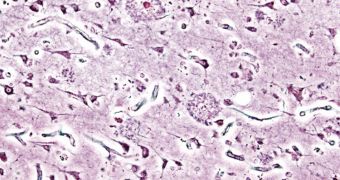Official statistics published in the Alzheimer World Report 2011 indicated that 20 to 25 million people out of the 36 million suffering from dementia have Alzheimer's. Detecting the condition early is therefore very important, so researchers recently developed a new method for doing that.
As the population in developed countries is getting older, the incidence of various forms of dementia will increase proportionally. This will place additional strain on already-embattled healthcare systems.
Detecting Alzheimer's before it fully develops would translate into significantly decreased costs associated with each patient. In addition, this would increase the likelihood of treatments succeeding.
An international collaboration of researchers recently announced the development of a new technique for measuring a protein complex called aggregated beta-amyloid in the human brain. These molecules were demonstrated to play a very important role in the development of Alzheimer's.
In addition to helping with detection, the new study could also be used as a starting point for developing new drugs against this protein complex. This is a very important objective, considering that predictions estimate between 70 and 150 million global cases of Alzheimer's by 2050.
“We found that patients with a greater number of Aβ oligomers [aggregated beta-amyloid] in the cerebrospinal fluid had a more pronounced disease,” Dr. Alexander Navarrete Santos explains.
The expert, who is the first author of a new paper detailing the discovery, was the one to develop the new measuring technique. He is now based at the University of Halle Department of Cardiothoracic Surgery Research Laboratory.
The scientist says that his study group included 30 patients suffering from neurological disorders, out of which 14 were diagnosed with Alzheimer's. Santos' research group included experts from Germany, Sweden and the United States.
“These samples provided from leading expert academic memory clinics in Germany and Sweden are of the best quality and are highly characterized in order to provide robust and reliable results on promising novel biomarker candidates,” adds Harald Hampel.
The expert, who is a professor at the Frankfurt University, was one of the lead investigators on the study, Science Daily reports.

 14 DAY TRIAL //
14 DAY TRIAL //